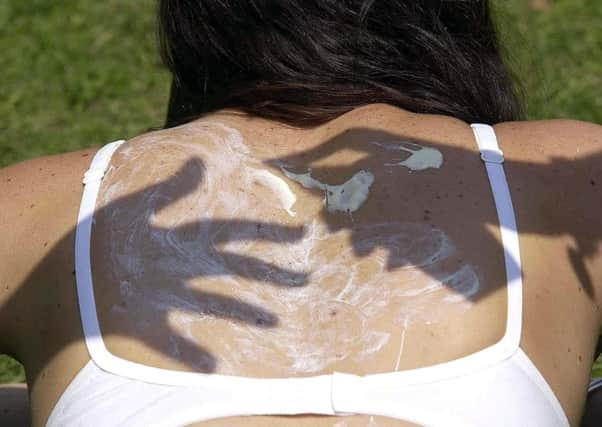Rise in deadly skin cancer blamed on cheap holiday boom


More than two Scots from the “sun, sea and sangria generation” are diagnosed with malignant melanoma each day, according to the latest figures from the charity Cancer Research UK.
Cases among Scots under 55-years-old are also rising, but at a slower rate of 27 per cent.
Advertisement
Hide AdAdvertisement
Hide AdMelanoma is considered the most dangerous form of skin cancer as it can spread to other organs in the body.
It is the most common cancer among Scottish teenagers as many shun suncream to get a better tan.
Scotland’s chief medical Dr Catherine Calderwood has previously spoken out over spiralling rates of skin cancer, urging Scots to avoid sunbeds and to cover up in the sun.
Linda Summerhayes, Cancer Research UK spokesperson for Scotland, said: “One of the reasons for the rise in melanoma rates is likely related to the ‘sun, sea and sangria’ generation who benefitted from cheap package holidays from the 60s onwards.
“Getting sunburnt doesn’t mean that you’ll definitely develop melanoma but it does increase your chances of developing the disease.
“It’s worrying to see that malignant melanoma rates are continuing to rise and it’s very important that people take care of their skin in strong sun, even if they’ve been sunburnt in the past.”
The number of deaths from melanoma in over 55s has risen to 150 per year but the number of people surviving their disease is also increasing.
Today nine out of ten people diagnosed with malignant melanoma in Scotland will survive their disease for at least five years compared to eight out of 10 people in the 1990s.
Advertisement
Hide AdAdvertisement
Hide AdIt comes as the UK-wide toll of diagnoses among over 55s exceeds 10,000 people in a single year for the first time.
This stark figure compares with around 3,100 cases diagnosed in the UK 20 years ago.
Earlier this year the Scottish Government launched a £100 million cancer strategy to improve prevention, diagnosis and treatment.